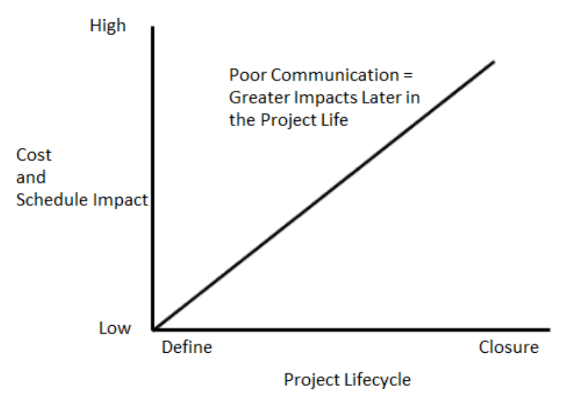
Click the button to start reading
What Makes a Good Project Manager? A Look at Key Skills and Traits
You’ve established the reputation of the person who delivers value. People seek you out because of the things you accomplish. People need to have you around to move projects forward. This feeling of being sought after indicates that you’re being successful as a project manager. You’ve become the linchpin of the team and the company you’re in.
Being a good project manager means having people do things for you. But how do you become a PM in reality and not by title only? The answer is – you intentionally build the qualities a PM needs to motivate the team, remove obstacles, and deliver stuff on time – consistently and successfully.
Certain traits and skills are essential for leading projects with care, thought, and organization. In this blog post, you’ll discover what attributes make a whole heap of difference to your ability to succeed.
First, let’s get on the same page about what a project manager’s role is, no matter the industry and objectives involved.

What does a good project manager do?
As a project manager, you plan, organize, and oversee the completion of projects, ensuring they’re on time, on budget and within scope. In other words, from project initiation all the way through to closure, you direct the entire project life cycle. That’s the traditional definition of what PMs do.
If we take a flesh-and-blood approach to project management, we can confidently state that project managers have to become the go-to person for their organization by showing that they can produce value. This doesn’t mean you’re irreplaceable; this means that you’re the resource people seek out if they need some help.
To become a good project manager, you should consider doing the following:
- Planning: Create a comprehensive project plan that outlines the project’s scope, objectives, and timelines. You should also identify the key stakeholders and align the entire team on the project goals.
- Resource management: You should ensure that the team has the necessary skills and resources to complete the project on time and within budget.
- Risk management: A good project manager should identify and mitigate risks through contingency plans and ensure everyone has the preparation to deal with unexpected events.
- Time management: As a good PM, you should create a project schedule that accounts for all tasks and dependencies which make sure nothing gets in your way to complete the project on time.
- Quality control: The project deliverables should meet the required quality standards. For this, you need to establish a quality control process and help all team members understand and follow it.
Now that we know that a crucial aspect of being a project manager is to balance multiple responsibilities and lead your team to success, let’s answer the question: how to become a good project manager?
Firstly, be aware that the five points mentioned above represent the façade of what makes a good project manager. We’re going to dive deep into the qualities of a good project manager and reveal the key competencies without which projects would never succeed or would simply fall apart.

The must-have competencies of a good project manager
Prioritizes work with ease
Don’t let any road take you to your final destination. Know your priorities. Ensure they guide you in choosing the best path for accomplishing your strategic goals. Prioritization gives your team a clear picture of your major tasks and helps everyone to stay on track. It also allows you to focus your time, energy, and resources on activities most important to the project’s success.
Change your priorities in a project, and it may affect the entire project completion timeline, scope and even budget. But you can’t possibly avoid it; external and internal factors will force you to prioritize and re-prioritize – a skill, by the way, that takes time to master.
Short of time, money, and personnel? By prioritizing tasks, you can allocate resources more effectively, ensuring they’re used most productively.
Each successful project starts and proceeds with prioritization because prioritization allows project managers to identify the tasks and activities that pose the greatest risk to the project’s completion. By focusing on these tasks first, project managers can develop contingency plans and mitigation strategies to minimize the impact of potential risks.
Thus, prioritization is an essential skill for project managers, allowing them to maximize resources, manage risks, increase productivity, improve decision-making, and enhance stakeholder satisfaction.
Communicates effectively
“Communication is the most important aspect in project management because what project managers do a majority of the time is communicate to coordinate efforts,” says Sarmann Kennedyd, assistant professor at Northeastern University.
As a project manager, you need to communicate project goals, timelines, and expectations to your team and clients. Without clear communication, misunderstandings may pop up, causing delays, conflicts, and confusion. Furthermore, communication skills are crucial in enabling project managers to solicit input and feedback from all stakeholders.
Remember, the poorer the communication, the greater the impact later in the project life cycle (as illustrated in the chart below):

Source: PMI
According to PMI (Project Management Institute), “one out of five projects is unsuccessful due to ineffective communications”. This includes collaboration across departments, clear and relevant communication, and gaps in understanding the business benefits. What’s more, to frame your discussions correctly, you should be aware of the hierarchical level in your organization and understand the underlying politics in upward and downward communication.
But that’s not where it stops. Two things make communication challenging in today’s business world.
- The first one is that team communication involves a variety of types. A project manager should be aware of the strengths and weaknesses of each type to be able to pick the right one in a given situation.
- The second one is the increasing shift to remote work models. Project managers need to recognize the benefits and drawbacks of each communication channel – be it verbal or non-verbal, in-person or virtual, written or oral, thus balancing their needs accordingly.
Tools like Teamly come as a lifeboat to clear the confusion in remote communication and help you get your message through instantly. Moreover, remote work tools make communication visual through screenshots and screen recordings whenever needed. Utilize such tools to keep conversations flowing and turn them into business results.
But the essential skills of a good project manager aren’t limited to prioritization and communication. Ready for two more competencies that’ll help you deliver projects successfully?

Delegates with confidence
Project execution in full swing? Problems creeping in? If you can’t distribute tasks effectively, tasks will pile up really fast.
To delegate effectively is to know each team member’s workload, availability, and competencies so well that you assign tasks without causing disruption, overload or dissatisfaction. Of course, when your employees are spread too thin, you might consider hiring new people. However, delegating tasks can empower team members and help them develop new skills if you consider the option of training. This can increase motivation and job satisfaction, which is reportedly linked to better performance and outcomes.
If a person can’t delegate, she can’t manage because she isn’t ready to share authority. It’s particularly crucial for those who’ve been promoted from the doer’s position to the managerial position and find it difficult to find time for both. The bad news is that you can’t be a doer and a manager at the same time and excel at both. The good news is – delegating can be learnt and mastered. You only need to recognize its importance and start building the skill today.
Many project managers fall into the trap of serving as technical experts for their teams. Be intentional about avoiding this trap. Once you get immersed in day-to-day technical activities, you lose sight of the bigger picture. Don’t be a doer; become the one who gets things done through your team’s efforts and free up time for high-level objectives.
A common misconception? Too often, people think delegation means you’re relieved of responsibility for the assigned task. Nothing could be further from the truth. You delegate the task, not your responsibility. You still remain in charge of project provision and evaluation.

Masters listening skills
Uncertainty, subtle details, and risks… When all of this comes together in a single project, good project managers start with listening.
People with good listening skills build trust more easily because they’re open to ideas and feedback exchange. Effective listening skills help project managers better understand the needs and perspectives of team members, stakeholders, and clients.It helps them evaluate different options and make decisions in the best interest of the project goals.
You should be present and focus your attention on the speaker to show them that you care. You should be willing to consider their perspective (even if you disagree with them). Listen without interrupting and listen with the intent to understand, not respond. What’s more, listen, attempting to understand the meaning behind the speaker’s words.
Conflicts are inevitable in any project. With effective listening skills, you can understand the root cause and work towards resolving them in a constructive manner. By listening carefully to various needs and concerns, you can manage expectations effectively and ensure that everyone is on the same page.
Even if you’ve got all the above points right, you might still feel something else should be fixed in your project management skills. And you’re right.

Easily adapts to changing environment
Adaptability is a soft skill that helps project managers adjust to moving timelines, priorities, clients or technology.
Markets undergo a transformation, and customer demands are increasing faster than we manage to deliver. The project manager is responsible for building resilience to change and being prepared to learn (and unlearn!) with each experience.
For example, the increasing shift to hybrid work models forced businesses to leverage technology in their day-to-day activities. Those who proved resilient and adaptable were quicker at responding to change. Faced with the new reality of having no traditional office, they adopted the tools to manage teams remotely and run projects efficiently across teams and time zones.
For managers who are adaptable, project details aren’t carved in stone. They continuously review processes and make adjustments to keep everything aligned with the bigger objective. They observe and analyze to implement solutions that allow the entire team to bounce back from failure and stay in line with the project goals.
We’ve covered the main skills you need to complete projects on a high note. We can move on to exploring the four attributes of a good project manager.
Let’s dive in.

The key characteristics of a good project manager
The list is practically endless, but we’ll state four main characteristics of a good project manager in this section. These are the ones that are most often overlooked but are usually more important than the traits of a project manager mentioned on job announcements or CVs.
1. Having a positive mindset
All too often, what we say is critical and self-limiting. Suppose the team is afraid of the project manager’s reaction. In that case, they’ll opt for hiding information – a scenario you want to avoid, as it may negatively affect the project and the team dynamics.
While it’s impossible to have a positive attitude 100 percent of the time, it’s possible to be attentive to the needs and expectations of each team member and take steps to help them. For example, instead of focusing on the skill gaps, you should concentrate on providing opportunities for training and career advancement. Understand your team members’ professional goals and discuss individualized paths for growth. This is the best sign to your team that you lean on their strengths rather than dwelling on their weaknesses.
When your attitude shifts towards positivity, the entire organization wins. A positive attitude can motivate team members and stakeholders to work harder and achieve their goals. When you’re optimistic, it creates a sense of enthusiasm and excitement, which keeps the team focused and engaged.
If the project manager is supportive, team members are more likely to work well together and collaborate effectively. Furthermore, a positive attitude can help to maintain team morale and avoid negativity and cynicism. This can create a more productive and enjoyable work environment and elevate team spirit, which will further boost team members’ well-being and job satisfaction.
Positive thinking is a process that takes time and patience. Obviously, just a little positive thinking won’t guarantee positive results. You need to practice it until it becomes a habit. While doing so, remember the old adage by the late Zig Ziglar, “Your attitude, not your aptitude, will determine your altitude.”
2. Being a relationship-builder
Project managers usually don’t own the resources they need to take projects from start to finish. By the way, you don’t only have to find those resources; sometimes, you also need to compete for those resources internally. Therefore, your ability to establish relationships with those who have the resources is critical.
Look at the organizational chart of your company and highlight the people you have to work with and the people you have direct contact with. Pay attention to people who aren’t in your silo and people whose next promotion doesn’t have to do anything with what they do for you. At some point, you may need to have them work with you, for you and on your projects.
A project manager needs good interpersonal skills to build relationships with individuals. Lacking confidence? Find someone who can mentor you through the process of networking. Unless you foster friendly relationships with all stakeholders, they won’t go out of their way to lend a helping hand when you need their assistance.
PMs need to foster a collaborative culture within the team, too. This allows you to start out with diametrically opposed positions and hammer out a viable solution through idea-sharing and discussions. As you build your network, also be intentional about building your reputation for adding value. By having people’s trust, you support your individual success and timely project completion.
Most importantly, project managers who have a strong network not only have many hands helping. They also know where their projects fit in the big picture. Therefore, they’re able to ask the right people the right questions at the right time. And also, invite the right people to your meetings!
3. Being assertive
Everyone can spot them quite easily. Assured body language, comfortable communicating, and making eye contact when talking. At the same time, there’s no aggression or arrogance.
These are the managers who are assertive at work. Calm and firm, these people know what they want. They don’t appear superior and can get their message through without a hitch.
Especially when situations are tough, assertiveness is important because it increases self-confidence and self-respect, allowing you to negotiate and communicate without confrontation. This not only improves your relationships with others but also earns you respect from your team because you can get what you need without trampling on others. Sometimes, project managers have to say “no”; when they’re assertive, they do it without being pushy.
Assertive project managers can calmly evaluate the alternatives, consider different options, and work their way to a workable solution. So, when you find yourself under pressure, slow down. To avoid making emotionally-charged decisions, use decision-making tools like SWOT analysis, “what-if” scenarios, etc. These help to stay informed about all risks and possibilities and make a decision you won’t regret in the future.
No wonder studies show that more than half of the respondents (55%) have reported that they’ve failed to take advantage of work opportunities due to their lack of assertiveness. Assertiveness can enable a project manager to reassure employees during a crisis. It involves being firm in how to proceed while empathizing with the concerns of the team.
We’re almost there. The last point may sound unusual and out of context. Generosity is important and valued. But can it be an essential driver of success? Let’s find out.
4. Being generous
Generosity keeps everyone joyful when times are tough.
Share information and credit. Give your time and expertise easily. Provide guidance to set new goals and implement innovative ideas. Done? Now watch your team spirit and work ethic rise.
Generosity at work may take various forms.
- Be supportive.
Suppose you have a team member who’s struggling with a personal issue. He’s going through a difficult time and is finding it challenging to meet project deadlines. Instead of reprimanding the team member, you take a compassionate approach and offer your help. You work with him to identify his strengths and weaknesses and provide additional resources to help him complete his tasks. Thanks to your generosity, your team member overcomes his challenges and completes the work on time. Obviously, this not only helps you succeed in completing the task but also improves team morale and strengthens relationships. No doubt, your team member now feels valued and appreciated and will get down to his next project with increased motivation. - Share credit.
Don’t keep all the brilliance of success to yourself. A good manager is a mentor who contributes to collective learning by sharing her professional highs and lows and offering guidance. Develop your junior team and those just starting out in the workplace. Research indicates that a significant majority of employees (78%) consider being acknowledged by their managers for their good work as “extremely important.” Does this data provide any hints about your next steps? Send an email to everyone and mention your team’s outstanding performance. Alternatively, recognize individual results in the upcoming meeting. - Give praise and constructive feedback.
Generosity can make a huge difference to productivity and the happiness of your team. It doesn’t mean spending lots of money on extravagant gifts. You simply need to share timely praise and positive feedback to help your team understand that their job is more than a paycheck. Colleagues and employees tend to trust, respect, and hold goodwill towards leaders and managers who show generosity.

Let’s wrap up!
The role of a project manager holds a lot of variety. If you’re wondering about how to be a good project manager, set the foundation by first building the necessary skills and qualities. Although each project comes with its unique set of tasks, you have all the chances for success if your foundation is strong.
Embrace the power of prioritization, open communication and timely delegation. Be attentive to detail, listen by being present and be prepared for unprecedented changes. These competencies are going to make the difference between an ordinary project manager and one who has a knack for keeping everyone motivated.
Good is okay until the excellent comes along. What makes a good project manager is your ability to keep replenishing your skills and become an indispensable project manager who can be trusted with any project of any complexity.
















